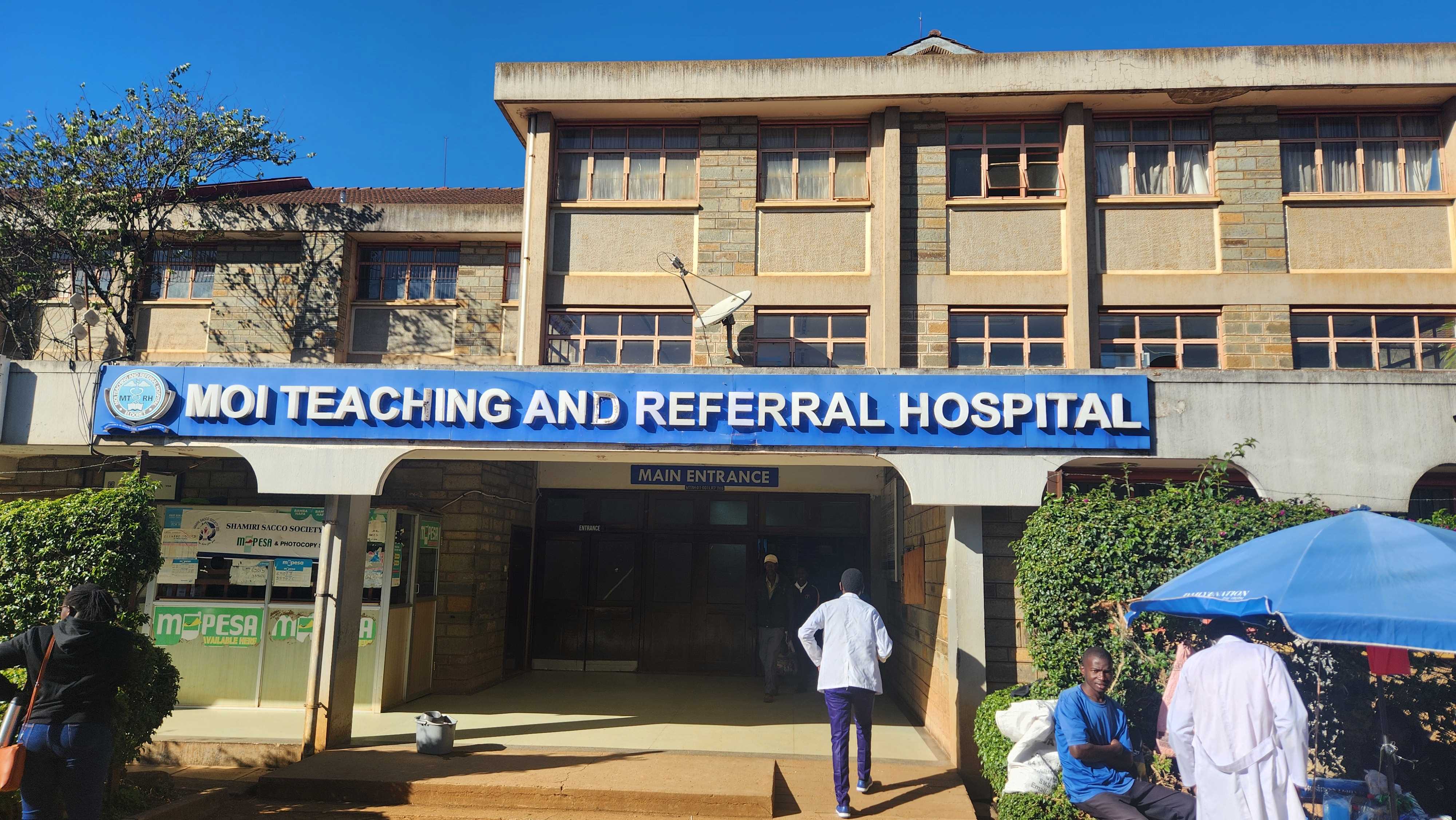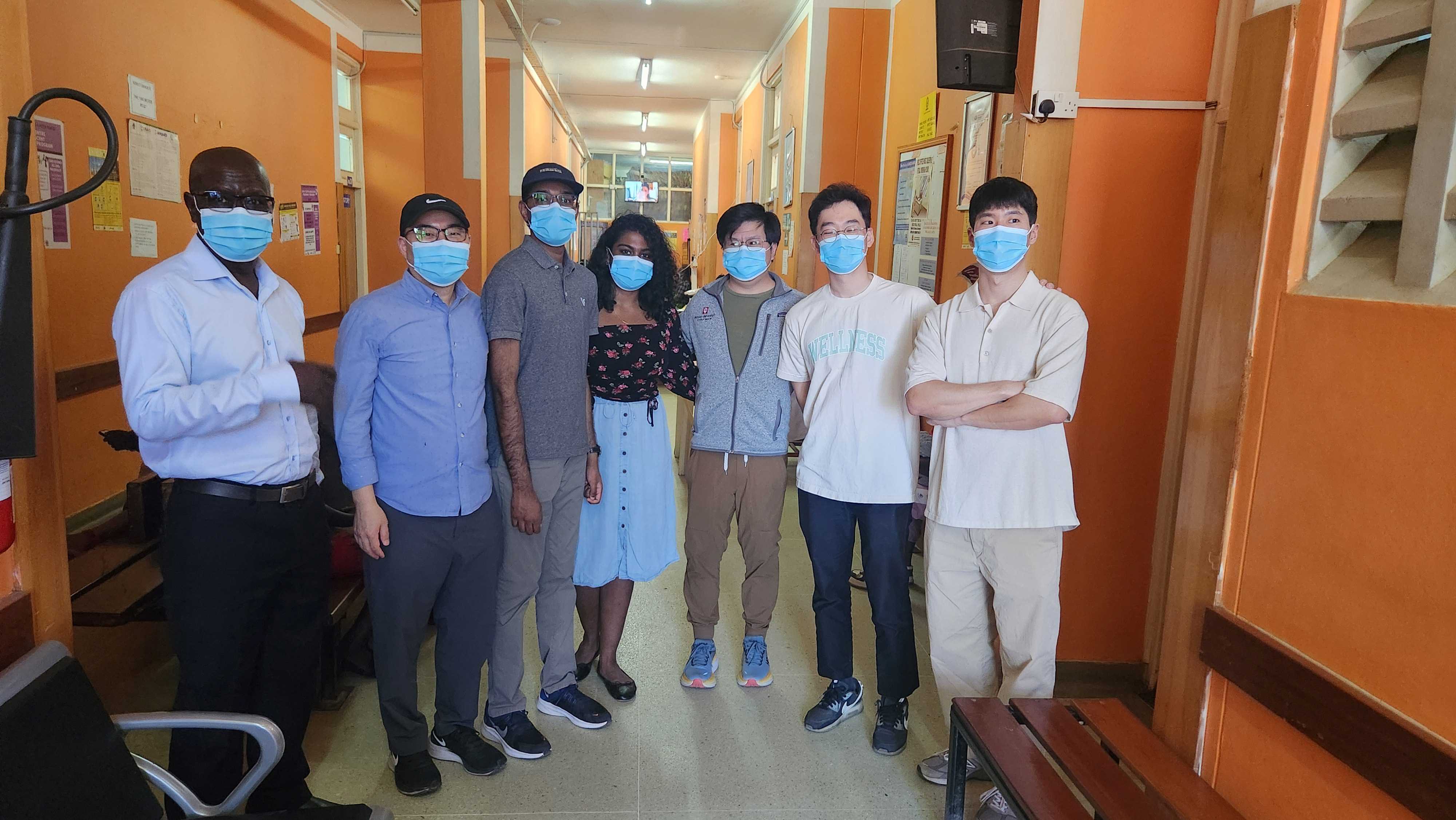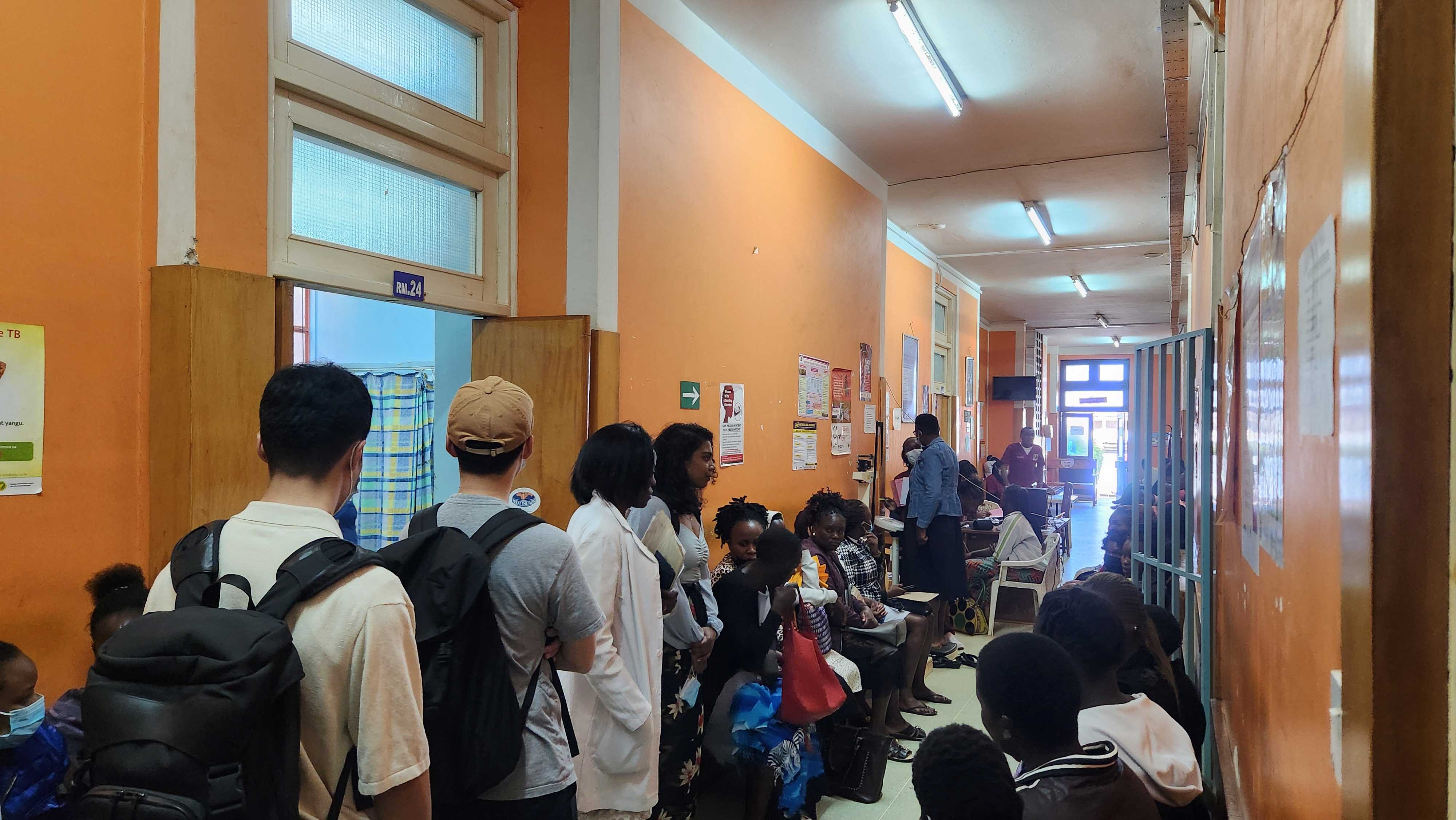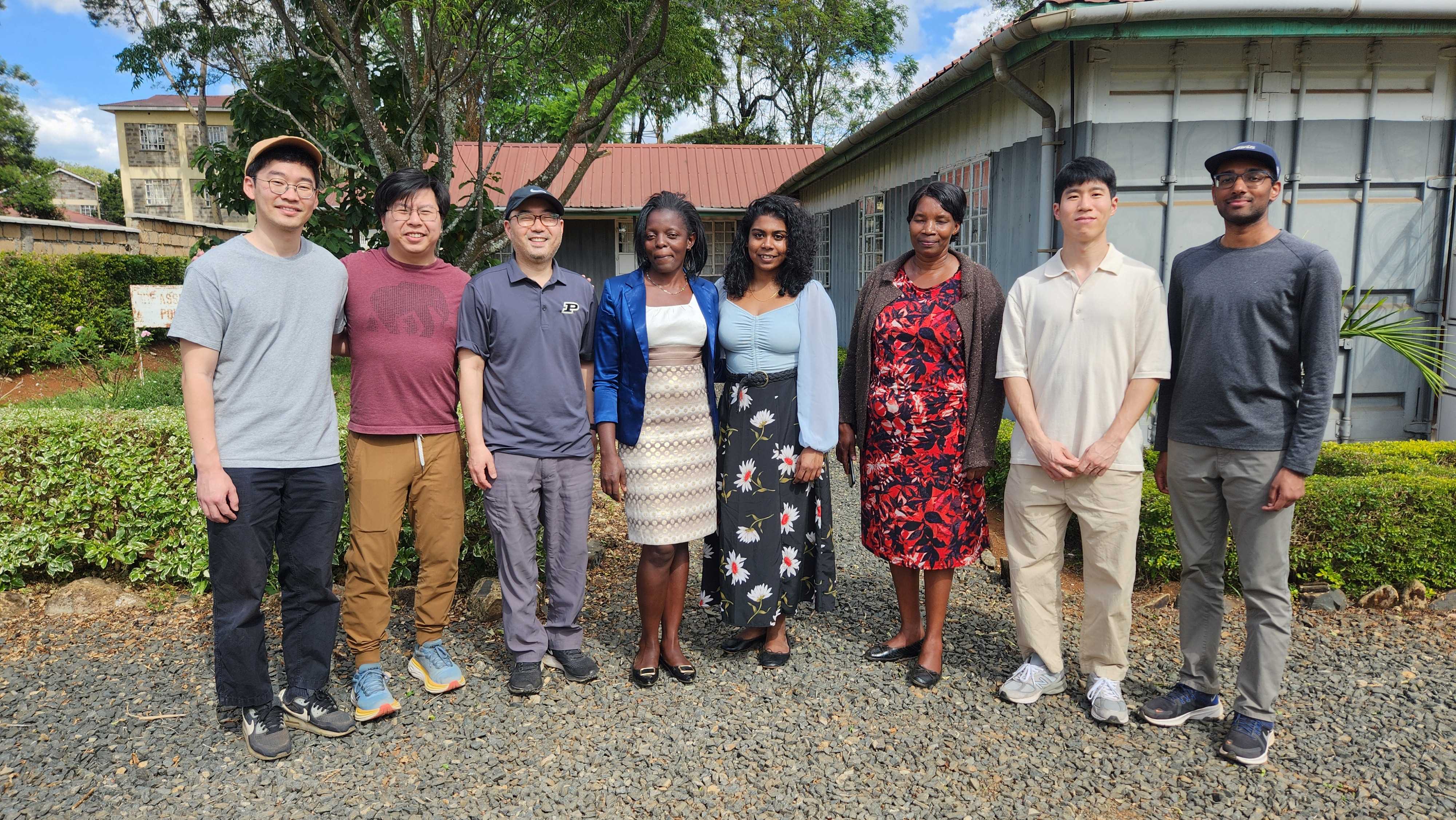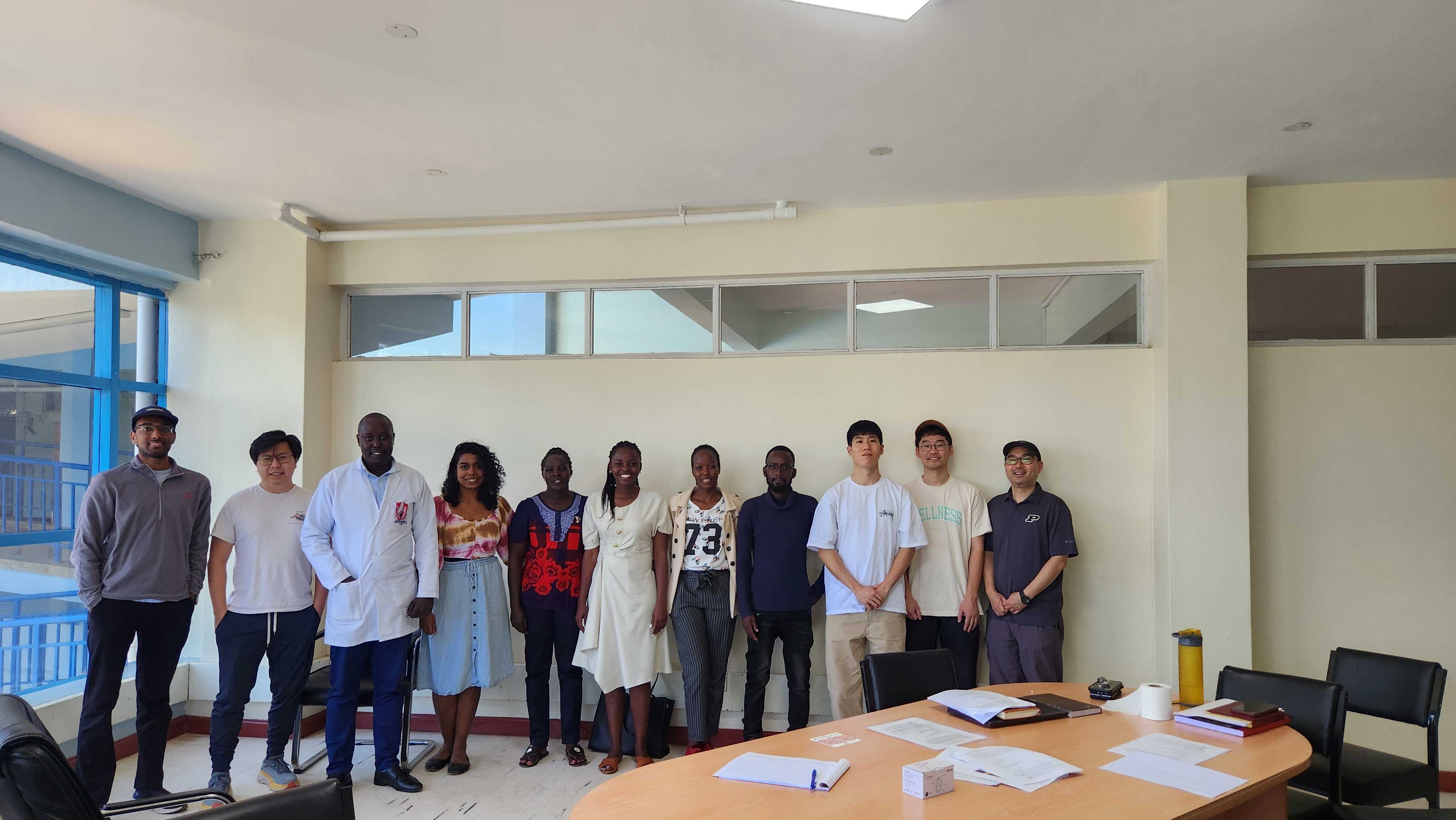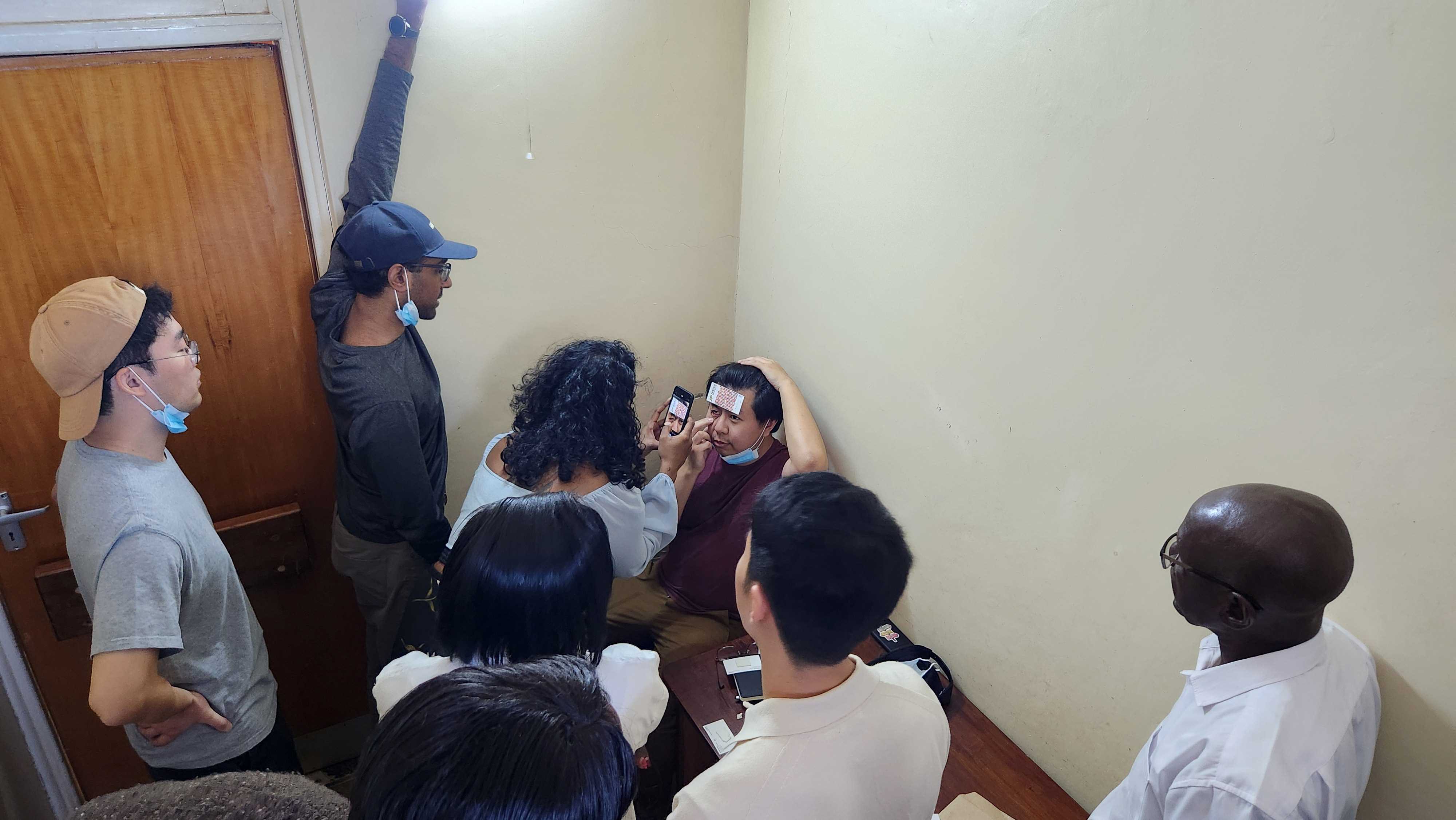Impacting global health today and tomorrow
The Bioengineering Machine Learning Lab team, led by Young Kim, PhD, MSCI, took a trip to Eldoret, Kenya to offer hands-on training to his collaboration team that could have a direct impact on global health—saving thousands of mothers and babies.
Young’s lab is developing artificial intelligence (AI) or machine learning (ML) based mobile health technologies (mHealth) to measure blood hemoglobin levels using photos of the eyelids captured by smartphone cameras. This mHealth technology can detect anemia, which is common among pregnant women, infants, and toddlers in low- or middle-income countries.
According to the Mayo Clinic, Anemia is a problem of not having enough healthy red blood cells or hemoglobin to carry oxygen to the body’s tissues. Having anemia can cause tiredness, weakness, and shortness of breath. It can be a warning sign of serious illness.
Anemia is a widespread problem as nearly a quarter of the world's population is anemic. In pregnant women, it can lead to premature births. In children, it can inhibit brain development and fine motor skills.
During this one-week trip, the team collaborated with the Maternal Child Health Clinics (MCH) at Moi Teaching and Referral Hospital (MTHR) and Academia Model Providing Access to Healthcare (AMPATH), both in Eldoret. They were there to evaluate and study logistics, offer hands-on training on protocols, and conduct test runs using the technology.
Using mHealth to detect anemia is quicker and cheaper than running traditional blood tests in expensive labs uncommon in low to middle-income communities (LMICs). More importantly, this is non-invasive.
“Beyond its applications within LMICs, this mHealth technology can provide an example of ‘reciprocal innovation’ by offering advanced mHealth and digital health technologies combined with telemedicine in rural and at-home settings in the US,” shares Kim, professor and associate head for research in Purdue’s Weldon School of Biomedical Engineering.
“Our team of biomedical engineers is motivated by the fact that what we are working on in the lab can have a direct impact on global health, saving thousands of mothers and babies. Additionally, this trip has given us a better understanding of different healthcare systems in the world.”
Young’s research is supported by grants from the National Institutes of Health (NIH).
Participants: Young Kim (PI), Sang Mok Park (BME postdoctoral fellow), Semin Kwon (BME postdoctoral fellow), Priya Sakthivel (BME Ph.D. student), Sreeram Nagappa (BME MS student), and Jonathan Huang (BME MD/Ph.D. student).
Read more about Young's mHealth research:
Fogherty-funded featured project
AI-driven mobile health algorithm uses phone camera to detect blood vessel oxygen levels
Young Kim wins top NIH award for device that uses photo of eyelid to detect diseases
Kim helps lay foundation for emerging mHealth technology in Africa
Purdue researchers receive grant to improve mobile testing for anemia

